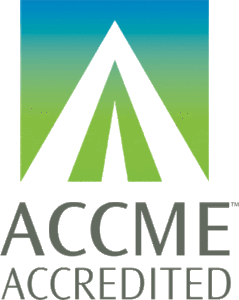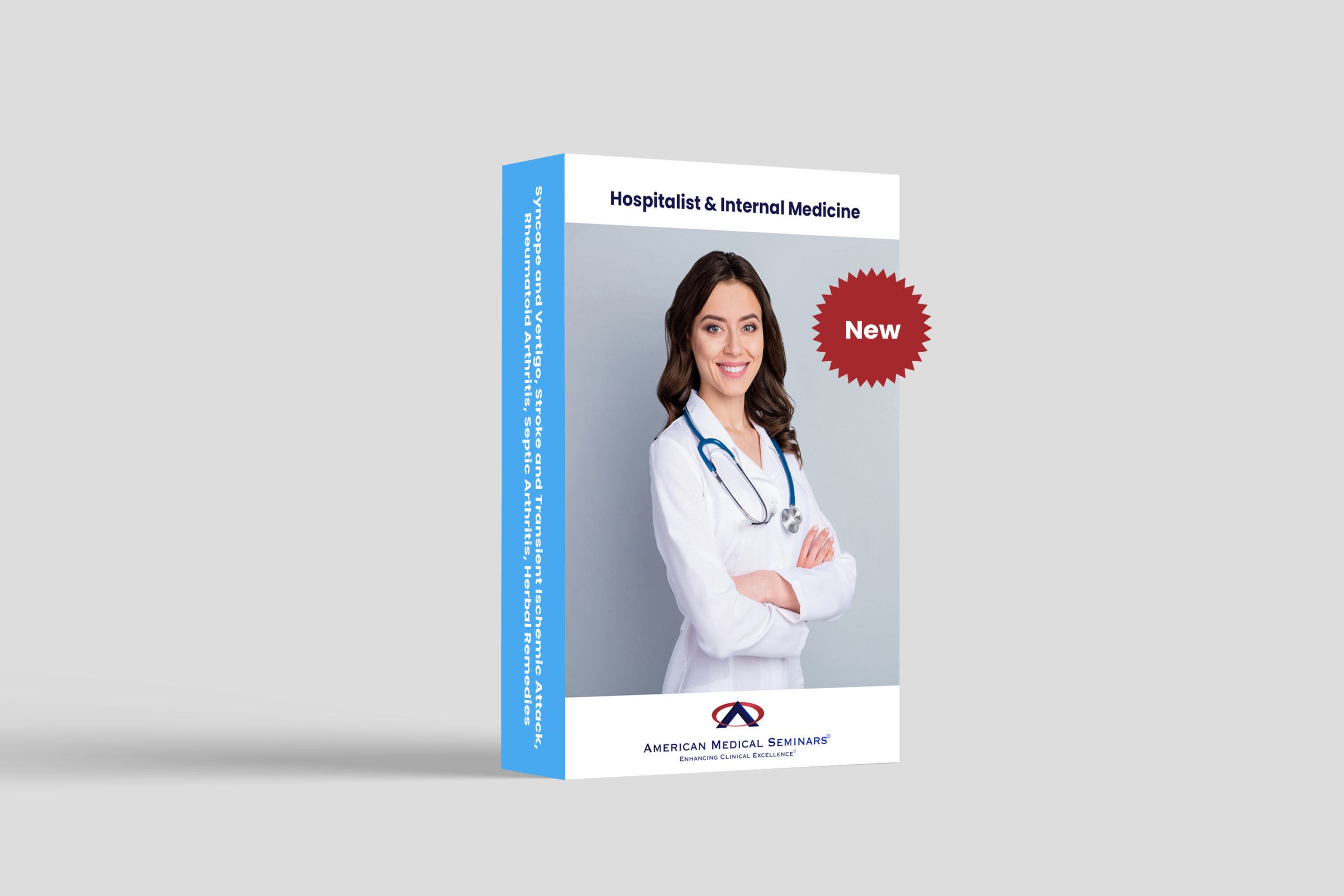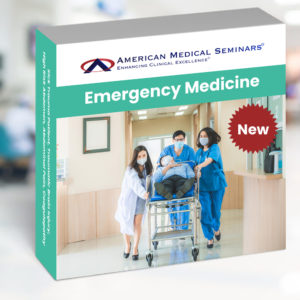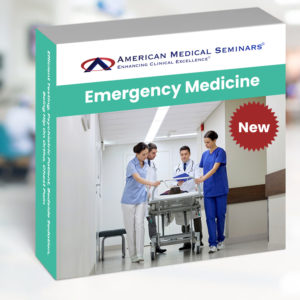Accreditation
AMA
American Medical Seminars, Inc. designates this live activity for a maximum of 5 AMA PRA Category 1 Credits™. Physicians should claim only the credit commensurate with the extent of their participation in the activity.
Accreditation Statement
 American Medical Seminars, Inc. is accredited by the Accreditation Council for Continuing Medical Education (ACCME) to provide continuing medical education for physicians.
American Medical Seminars, Inc. is accredited by the Accreditation Council for Continuing Medical Education (ACCME) to provide continuing medical education for physicians.
Title: Hospitalist & Internal Medicine: Syncope and Vertigo, Stroke and Transient Ischemic Attack, Rheumatoid Arthritis, Septic Arthritis, Herbal Remedies
Course ID: W-20220613-HMIM-2
Faculty: Kendal Williams, M.D., M.P.H., Vandana Y. Bhide, M.D., F.A.C.P., F.A.A.P., A.B.I.H.M.; and Lawrence H. Brent, M.D.
Original Release Date: July 1, 2022 Expiration Date: July 1, 2025
Topic 1: The Evaluation and Management of Syncope and Vertigo (Williams)
- Appropriately evaluate patients with syncope or vertigo.
- Formulate a diagnostic evaluation strategy of syncope or vertigo that is based on best practices and the 2017 ACC/AHA/HRS guidelines.
- Debate the value of the various diagnostic approaches to the workup of syncope.
- Prescribe an effective therapeutic strategy for the management of both syncope and vertigo per the 2017 ACC/AHA/HRS guidelines.
Topic 2: Update on the Management of Stroke and Transient Ischemic Attack (Williams)
- Assess common presentations of cerebrovascular insufficiency.
- Prescribe the initial management of patients with a suspected acute CVA.
- Apply cutting edge strategies and therapies for the management of hemorrhagic and thrombotic strokes.
- Distinguish between stroke and TIA and appropriately assess the patient with TIA for early risk of stroke.
- Formulate an effective post-stroke secondary prevention plan as per the AHA/ASA guidelines.
Topic 3: Rheumatoid Arthritis (Brent)
- Demonstrate the role of genetics, environmental factors, immune cells, and proinflammatory cytokines in the pathogenesis of rheumatoid arthritis.
- Illustrate the clinical features, extra-articular manifestations, and complications of rheumatoid arthritis.
- Utilize and compare various methods of measuring disease activity in rheumatoid arthritis.
- Compare and contrast the mechanisms of action of current and emerging therapies for RA and prescribe treatment for patients with rheumatoid arthritis according to ACR guidelines.
Topic 4: Septic Arthritis (Brent)
- Determine the risk factors associated with septic arthritis.
- Utilize the British Society of Rheumatology Guidelines for management of the hot swollen joint in adults to differentiate septic arthritis from other causes of acute monoarticular arthritis.
- Utilize epidemiological and clinical clues to determine bacterial etiology in patients with septic arthritis.
Topic 5: An Evidenced-Based Look at Commonly Used Herbal Remedies (Bhide)
- Evaluate the efficacy of commonly used botanicals.
- Evaluate common herb-drug interactions.
- Apply caution with use of high-risk herbal agents.
- The receipt for any incentive-associated purchase will designate the value of the gift card separately from the cost of the learning activity.
- This incentive may have implications on your tax reporting obligations. Any reimbursed amount must be declared as personal income for tax purposes.



